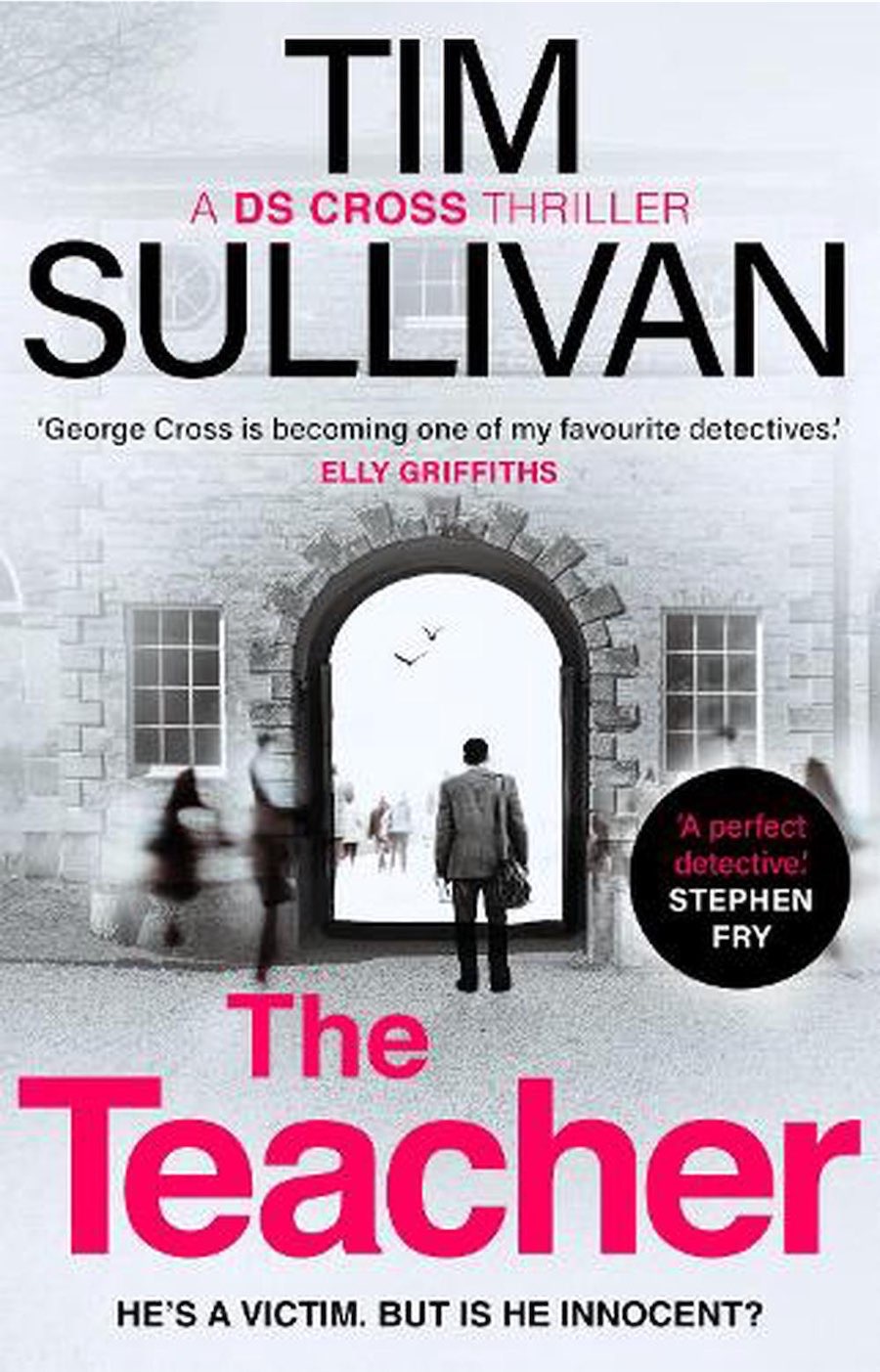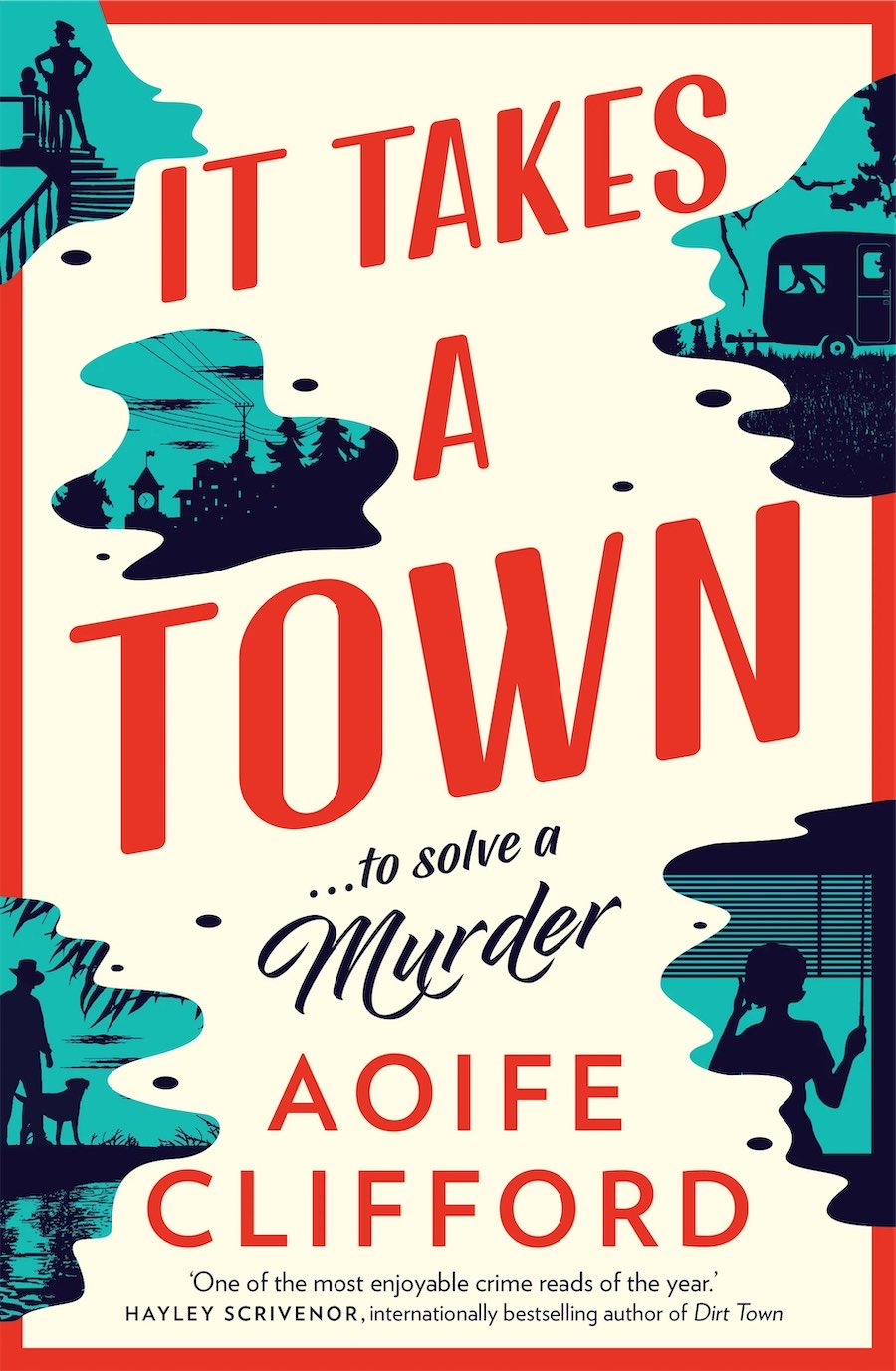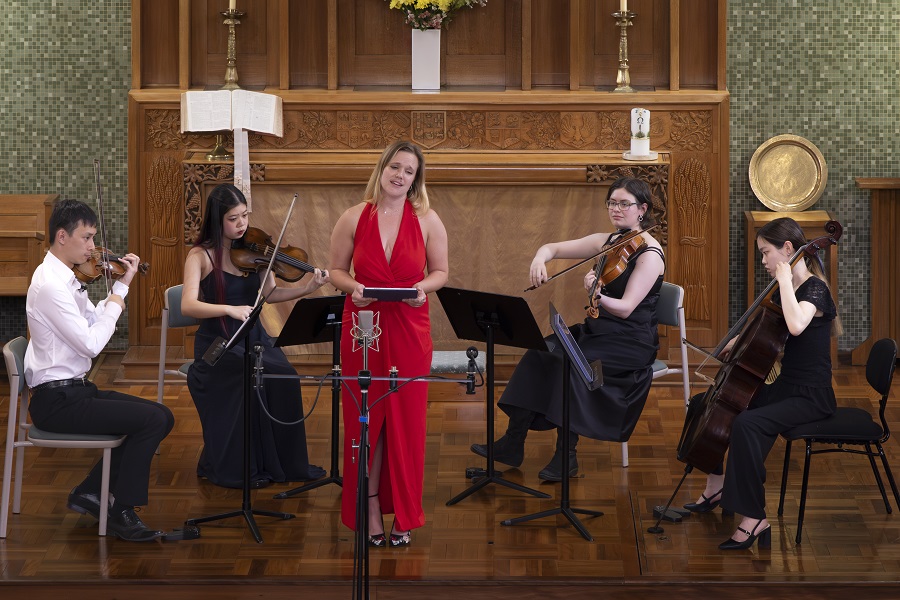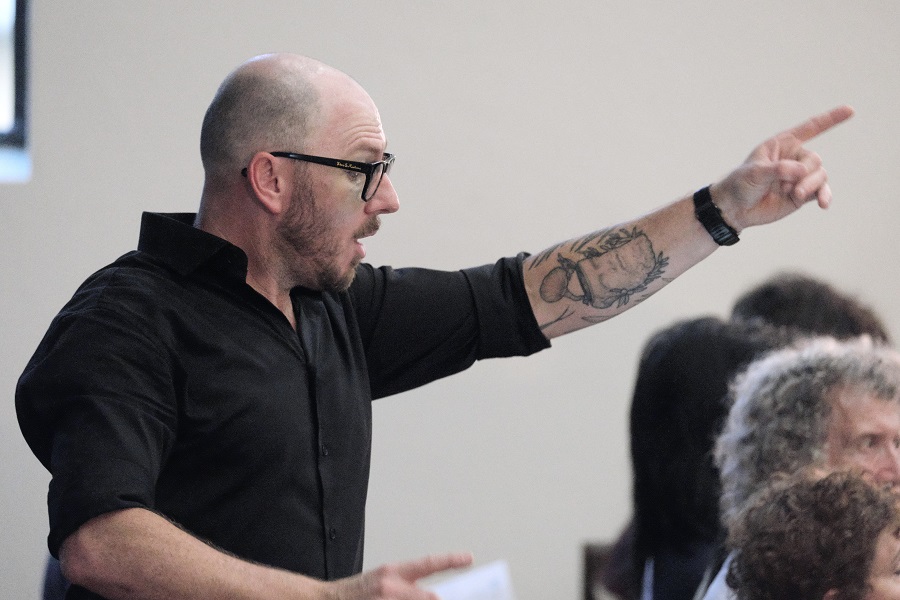
ANNA CREER reviews the latest thriller from UK author Tim Sullivan, a successful British screenwriter and director of film and television, as well as a best-selling crime writer.
The Teacher is the sixth in Tim Sullivan’s DS Cross thriller series featuring a detective who has been diagnosed with autism spectrum disorder.

George Cross, who is a member of the Major Crimes Unit of the Avon and Somerset Police, is an extraordinary creation. His colleagues understand that he has no sense of humour and is “averse to small talk as well as being completely inept at it”.
DCI Carson indulges Cross’ need for quiet and his own space, as well as his literal interpretation of any conversation because Cross is “uniquely gifted when it comes to solving crime”. He has the highest conviction rate in the force.
He plays the church organ to relax. “The sounds of the organ, particularly the low pedal notes reverberating off the walls, in an almost physical way, put him in a familiar safe and comforting solitary space”.
The Major Crimes Unit is called to the small village of Crockerne, where an elderly, reclusive man has been found murdered. Alistair Moreton was not popular in the village. He was opinionated, “didn’t care who he upset”, disrupted parish council meetings and took his neighbours to court repeatedly.
When the police discover Moreton had been the headmaster of a prep school with a reputation for bullying and sadistic beatings, the number of suspects grows.
Cross is supported by his colleagues, as he begins the investigation, but a senior officer from a neighbouring force, DI Warner, is co-opted to lead the team. His lack of understanding of Cross’ character creates humour, until the dark side of DI Warner is revealed.
Sullivan’s vivid style reflects his film and screenwriting career particularly in his descriptions of the sadism of the prep school and Cross’ interviews with suspects.
In his acknowledgements, he reveals that “the writing of this novel has been surprisingly cathartic” because he has drawn on his own experiences at his first prep school to create Moreton and his behaviour, saying: “I still find it unbelievable and inexcusable what happened to me and my contemporaries in a quiet corner of Somerset many years ago”.
AUSTRALIAN author Aoife Clifford was born in London of Irish parents, studied arts/law at the Australian National University, and now lives in Melbourne. She has been writing best-selling, award-winning, literary crime novels since 2016.

Clifford sets her latest novel It Takes a Town in the fictional remote Australian country town of Welcome, which has produced one famous celebrity, Vanessa Walton, who has returned to live in the town and teaches drama at the local high school.
Vanessa found fame as a child and has “the sort of charisma that had caught the nation’s eye and managed to hold its faithless gaze for most of the following 40 years”.
Sergeant Carole Duffy arrives in Welcome, the morning after a violent storm, to learn that Vanessa Walton has been found dead at the bottom of her stairs. The evidence suggests that she tripped and fell, as there’s no sign of a forced entry. The coroner decides the death was an accident.
The Langridges are Welcome’s wealthiest family. Barton Langridge, who “has the sort of face you instantly want to punch, even if you know nothing about him and his statements about ‘crazy lefties’, ’Marxist teachers’ and ‘taking Australian jobs’,” is the local member of parliament.
Jasmine Langridge, Barton’s 16-year-old stepdaughter, a climate activist who vehemently opposes her stepfather’s ideas, believes Vanessa was murdered, as she and her friend accidentally discovered anonymous death threats in Vanessa’s bag at school.
When Jasmine disappears the police are forced to reinvestigate Vanessa’ death as they search for Jasmine.
Carole Duffy is told, “it takes a town to solve a murder” but it is the women of the town, the English teacher, the supermarket worker, the nosey neighbour and Jasmine and her friend Brianna who ask the right questions and uncover hidden truths, revealing the motivation and identity of the murderer.
Clifford says that her novel explores “the unintended consequences of a murder investigation across a community, the price of fame told from the perspective of the not-so famous, and how the real dangers come from the ones we love. Life can be both heartbreaking and hilarious and it is important that my writing reflects this.”
As a result, It Takes a Town is a complex and immersive read.
Who can be trusted?
In a world of spin and confusion, there’s never been a more important time to support independent journalism in Canberra.
If you trust our work online and want to enforce the power of independent voices, I invite you to make a small contribution.
Every dollar of support is invested back into our journalism to help keep citynews.com.au strong and free.
Thank you,
Ian Meikle, editor




Leave a Reply